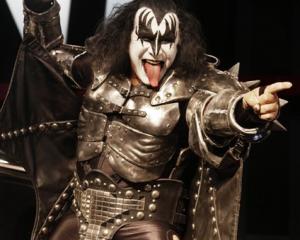
Defence attorneys have countered that Jackson caused his own death by taking the drug propofol after his doctor left the room in a desperate attempt to overcome his chronic inability to sleep.
Nothing Dr. Conrad Murray could have done would have saved the King of Pop, defence attorney Ed Chernoff told the panel, because Jackson was desperate to regain his fame and needed rest to prepare for a series of crucial comeback concerts.
The competing versions of Jackson's death and Murray's role in it were laid out in opening statements at the physician's involuntary manslaughter trial.
Speaking for more than an hour, prosecutor David Walgren relied heavily on photos and audio recordings to make his case that Murray was an inept and reckless caretaker of Jackson.
He showed a photo of a lifeless Jackson on a hospital gurney, and played a recording of Jackson speaking to Murray while the prosecutor said he was under the influence of an unknown substance roughly six weeks before his death.
The singer's speech was heavily slurred but recognizable as the international superstar. He spoke of his hopes for the upcoming concerts.
"We have to be phenomenal," Jackson is heard telling Murray. "When people leave this show, when people leave my show, I want them to say, 'I've never seen nothing like this in my life. Go. Go. I've never seen nothing like this. Go. It's amazing. He's the greatest entertainer in the world."
Murray is accused of giving Jackson a lethal dose of propofol in the bedroom of the singer's rented mansion, but Chernoff said Jackson gave himself the fatal dose.
He claimed the singer swallowed several pills of the sedative lorazepam on the morning of his death and that was enough to put six people to sleep. He also said Jackson self-ingested propofol, and it killed him instantly.
Jackson did not even have a chance to close his eyes, Chernoff said.
In his opening remarks, Walgren said Murray was grossly negligent by providing Jackson propofol. The prosecutor said while working for Jackson, the doctor was shipped more than four gallons of the anesthetic, which is normally given in hospital settings.
He said Jackson trusted Murray as his physician.
"That misplaced trust in Conrad Murray cost Michael Jackson his life," Walgren said.
"He left him there, abandoned him to fend for himself," the prosecutor said later while winding down his opening remarks.
The doctor had initially requested $5 million to work for the singer for a year, but accepted the lower rate of $150,000 a month, Walgren said. His contract to be Jackson's personal physician was never signed and he was never paid.
He told jurors that Murray deceived paramedics and emergency room doctors by not telling them he had been giving Jackson propofol as a sleep aid. He also called the doctor inept and said he repeatedly deviated from the standard of care by leaving the singer alone while under sedation and not immediately calling 911 when he found the singer was unconscious.
Murray never called for emergency services himself, instead waiting more than 20 minutes to have one of Jackson's bodyguards make the call.
"Basic common sense requires 911 be called immediately," Walgren said. "Basic common sense. And we know that was not done."
Chernoff told jurors it was not their job to determine whether Murray was a good doctor. He said Murray and Jackson were actually friends, and Murray was trying to wean Jackson off of propofol. Jackson, however, took a lethal dose before he died, the lawyer said.
At times during the defence attorney's opening statements, Murray appeared to be crying and wiped his eyes with a tissue.
Testimony was expected to begin later in the day, with prosecutors planning to call the pop superstar's friend and choreographer, Kenny Ortega.
A number of Jackson's family members were in the courthouse, including his father Joseph, mother Katherine, sisters LaToya and Janet, and brothers Jermaine, Randy and Tito.
LaToya Jackson carried a sunflower, Michael's favourite flower.
Murray arrived holding hands with his mother.
If convicted, he faces up to four years in prison and the loss of his medical licence.







